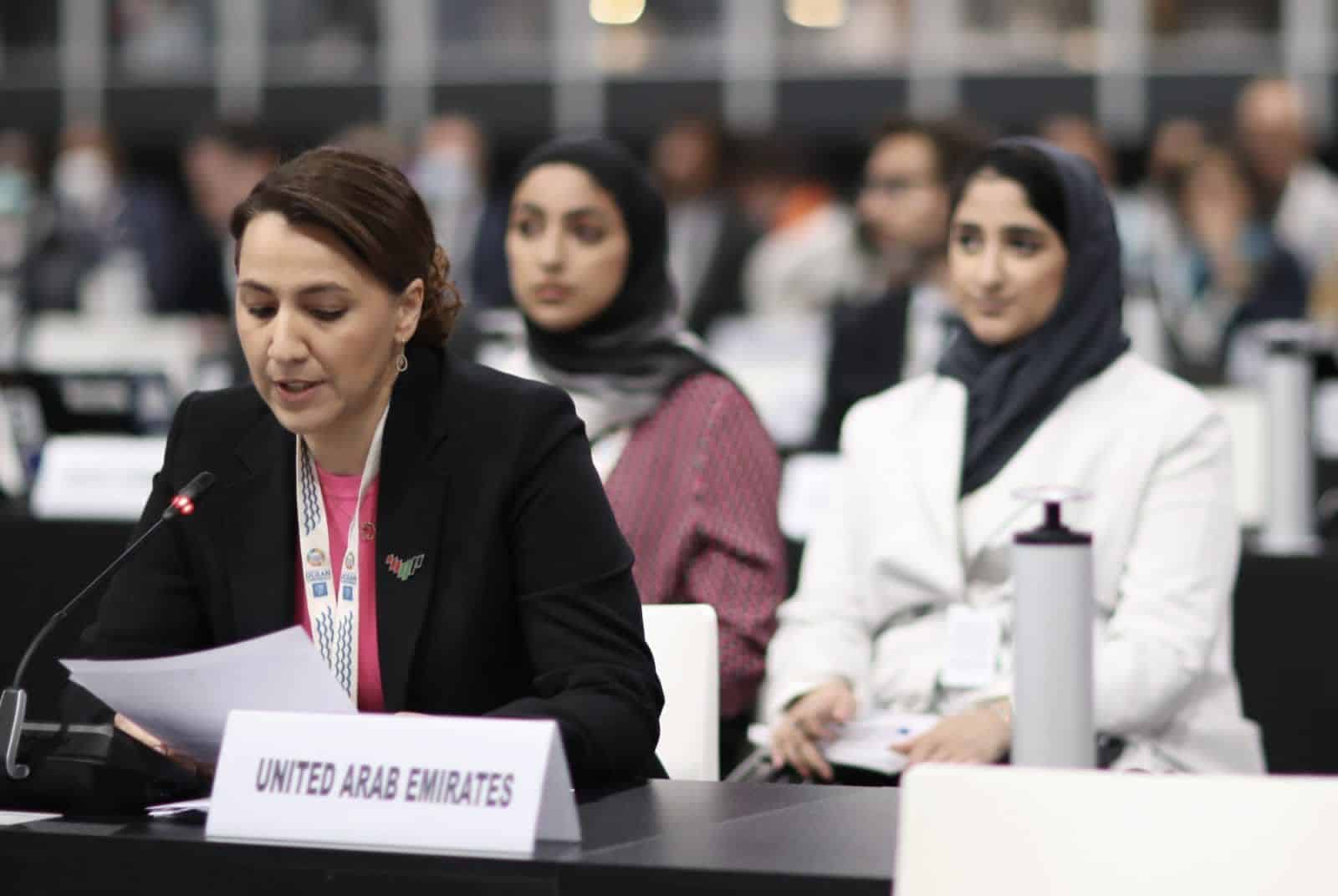UAE Minister of Climate Change and the Environment Mariam bint Mohammed Almheiri spoke on the importance of leveraging nature-based solutions, especially blue carbon ecosystems, to mitigate and adapt to the impacts of climate change.
The minister made the remarks at the UN Ocean Conference (UNOC), co-hosted by the governments of Portugal and Kenya in the Portuguese capital Lisbon.
The minister said, “It was a pleasure to attend UNOC that comes at a crucial time for ocean conservation. At the 28th UN Climate Change Conference (COP28) in the UAE next year, we aim to continue the dialogue on accelerating the deployment of ocean-based climate solutions.”
Almheiri spoke on the importance of leveraging nature-based solutions, especially blue carbon ecosystems, to mitigate and adapt to the impacts of climate change.
She said, “We are keen to exchange knowledge and experience with other countries and explore opportunities for effective partnerships in this space. Because if we want to have a fighting chance of keeping global warming within 1.5˚C, we need to make the most of every solution available to us and we need to do it together.”
During an interactive session, Almheiri spoke on ways to tackle marine pollution from land- and sea-based sources that have negative impact on the world’s oceans.
She said that the UAE works to protect its marine and coastal environment and preserve its vital ecosystem in line with its commitment to implement UN Sustainable Development Goals (SDGs).
These include expanding the network of marine protected areas, implementing fishing regulations, developing the aquaculture industry, combating marine pollution and rehabilitating degraded marine ecosystems.
The UAE has achieved the two targets of SDG 14 that had a deadline in 2020. Having designated 16 marine protected areas that account for 12.01 percent of its marine and coastal territory, the country achieved a target that entails conserving at least 10 percent of coastal and marine areas.
In addition, the nation maintains global leadership in the Marine Protected Areas category of the Environmental Performance Index (EPI).
Through integrated management of its marine protected areas, whose effectiveness is being regularly evaluated, the UAE has also achieved a target that requires countries to implement measures to sustainably manage and protect marine and coastal ecosystems, and take action for their restoration.
The world’s oceans face a wide variety of threats – such as acidification, marine litter, pollution, illegal, unreported and unregulated (IUU) fishing and the loss of habitats and biodiversity.
UNOC’s sessions put each of these threats in the spotlight to spur a productive exchange of ideas aimed at preserving healthy oceans for future generations.
The conference began on June 27 and will end on July 1. The UNOC seeks to drive the development of science-based innovative solutions to support the implementation of UN SDG 14.

